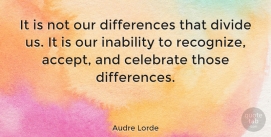No matter where you live, you have relationships with people who have different cultures. Culture refers to a group or community who share a common experience that shapes the way they understand the world. This includes people of different race, national origin, gender, class, or religion. But it can also include a group we join or become a part of. You might move to a new country, have a change in your economic status or become disabled.
When you are working with people and building relationships with them, it is important to have an understanding of their culture. Their views, their values, their loyalties, their hopes, and their fears are all influenced by their culture. People may see the world differently, but there are many things that we each have in common. We are all human beings. We all love deeply, want to learn, have hopes and dreams. And we have all experienced pain and fear.

We need a wide range of ideas and wisdom to solve problems. Bringing a diverse group of people into the center of an issue can provide fresh perspectives and shed new light on tough problems. Racial and ethnic conflicts drain communities of financial resources, human resources, and distract the community from resolving the key issues they have in common.
We shouldn’t pretend that the differences don’t matter, but we must remember that everyone has an important viewpoint and a role to play when it comes to culture. Everyone can be uplifted by taking the time to understand culture and create diverse groups who can work together. Only then can we form an alliance against discrimination and be effective in reaching common goals.


Leave a comment
Comments feed for this article